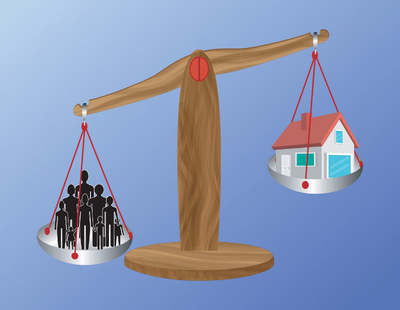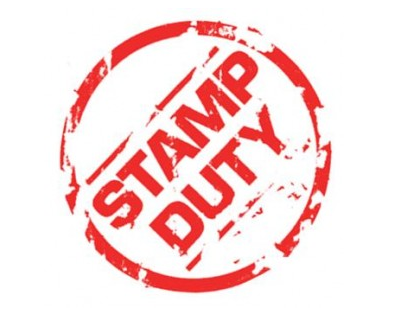Agents and conveyancers will have breathed a sigh of relief after the much-rumoured Stamp Duty cut was confirmed and introduced immediately last week, addressing concerns from buyers about to complete on transactions at the end of last week.
Within an hour of the announcement traffic to Rightmove jumped by 10%, the portal said.
Raising the threshold to £250,000 means that a third of all homes currently for sale are now completely exempt from Stamp Duty in England, Rightmove revealed.
That is up from 7% when the threshold was £125,000.
It means that two thirds of homes are now exempt from the property tax for first-time buyers in England.
The Treasury said that doubling the nil-rate band will enable up to 29,000 more people to move home each year, while the increased threshold for first-time buyers will give them more options.
Its figures suggest a first-time buyer purchasing a £400,000 property would save £5,000 on Stamp Duty.
The saving increases to £11,250 for first-time buyers on a £600,000 home.
The savings are smaller for home-movers, at £2,500 for a £400,000 or £600,000 purchase.
It is no surprise then that commentators suggested these cuts are good for first-time buyers but could have done more to target groups such as downsizers.
Nathan Emerson, chief executive of agency trade body Propertymark, said: “The rebalancing of the thresholds for which stamp duty is paid, in particular for first time buyers is long overdue to catch up with house prices which have risen at an extraordinary rate.
"We did hope that Stamp Duty for downsizers or last time movers would have also been reviewed to release the latter part of the market, which when blocked stops movement further down for second steppers and first-time buyers, causing stagnation as buyers have nothing to move on to.”
Jeremy Leaf, north London estate agent and a former RICS residential chairman, added: “The Chancellor clearly recognises the dangers in terms of reduced revenue from stamp duty, given the recent reduction in housing market activity, and has taken steps to boost the market.
“The stamp duty cut, particularly for first-time buyers, should encourage those at the first rung of the housing ladder to take the plunge, which will be good not just for the market but for job and social mobility across the board, as well as the wider economy.
“It is good news that it is an immediate and permanent reduction which means that existing transactions shouldn’t be unduly delayed and the benefits can be felt as soon as possible.
“We would have liked to have seen extra help not just for first-time buyers but to encourage energy-efficient properties and more investment on cutting energy use.”
Kwarteng did make promises on removing planning restrictions and abolishing Stamp Duty on land purchase for development, but critics warn that the tax cuts won’t help address supply issues.
Brian Murphy, head of lending at Mortgage Advice Bureau, said: “This could turn out to be an excellent time to properly revisit the structure of Stamp Duty.
“Numerous governments have tinkered with it, but it tends to push up prices for a short period and then momentum generally mellows. It hasn’t been long since we last had a Stamp Duty break, and these things tend to generate momentum that causes a flurry of activity followed by a period of slowdown.
“However, the permanency of the announcement may temper a sudden surge of activity and allow some control of the UK property market to be regained.
'Still, the crux of the issue is that any changes in Stamp Duty will not address the main problem right now: a significant supply shortage."
Much of the excitement of a Stamp Duty rate cut has also been tempered by the Bank of England raising interest rates to a 14-year high last week.
Tom Bill, head of UK residential research at Knight Frank, said: “Just when you think housing demand is cooling, along comes another Stamp Duty cut.
“Together with other measures designed to boost the economy, a cut will intensify and prolong demand in the housing market. However, what the Chancellor is giving away, the Bank of England will more than take away.
“Many buyers will find the impact of rising mortgage rates soon eclipses the benefit of a Stamp Duty cut, which will keep firm downwards pressure on prices next year.
“The cost of a five-year fixed-rate mortgage has almost tripled over the last year and this upwards trajectory will continue. Almost four million first-time buyer mortgages have been issued since 2009, which is a large group of homeowners who don’t know what it’s like when monthly interest payments rise meaningfully. The gravitational forces of higher rates will bring house prices back down to earth irrespective of any Stamp Duty cut.”
Simon Nosworthy, head of residential conveyancing at Osbornes Law, added: “I’m relieved that this isn’t a barmy Stamp Duty holiday that creates a cliff edge like as have experienced in past couple of years, but this permanent Stamp Duty tax cut ultimately isn’t likely to have much of an impact compared to bigger issues that the market faces such as ever increasing demand for housing and increasing mortgage rates.
"Further, while a cut is welcome news for house buyers it could also increase house prices as any stimulus will naturally increase demand. The changes made for first time buyers will be beneficial but really the buyers in this sector need house prices to come down rather than being saddled with increasing prices and mortgage debt.”
The changes only apply in England and Northern Ireland, prompting calls for something similar north of the border.
David Alexander, chief executive of DJ Alexander Scotland, the largest lettings and estate agency in Scotland, said: “The reduction in Stamp Duty and the increase in the threshold before the tax is paid must be replicated in Scotland if there is not be a growing divide between the housing market here and in the rest of the UK.
“Scots already face much higher taxation when buying a home and any further reduction in the rates and increase in the threshold in England will only exacerbate what is already an unfair situation.”










2022_400x310.png)





.png)


.jpg)




.png)



Join the conversation
Jump to latest comment and add your reply
how does annual £500 saving in tax and £3,000 increase in mortgage payments (assuming £200k mortgage) leaving people £2,500 a year worse off drive growth ? would love some explanation / thoughts on this !!!
With talk of BOE rates being 6% in less than 6 months, with a whopping 165bps increase in November, who knows?
Please login to comment